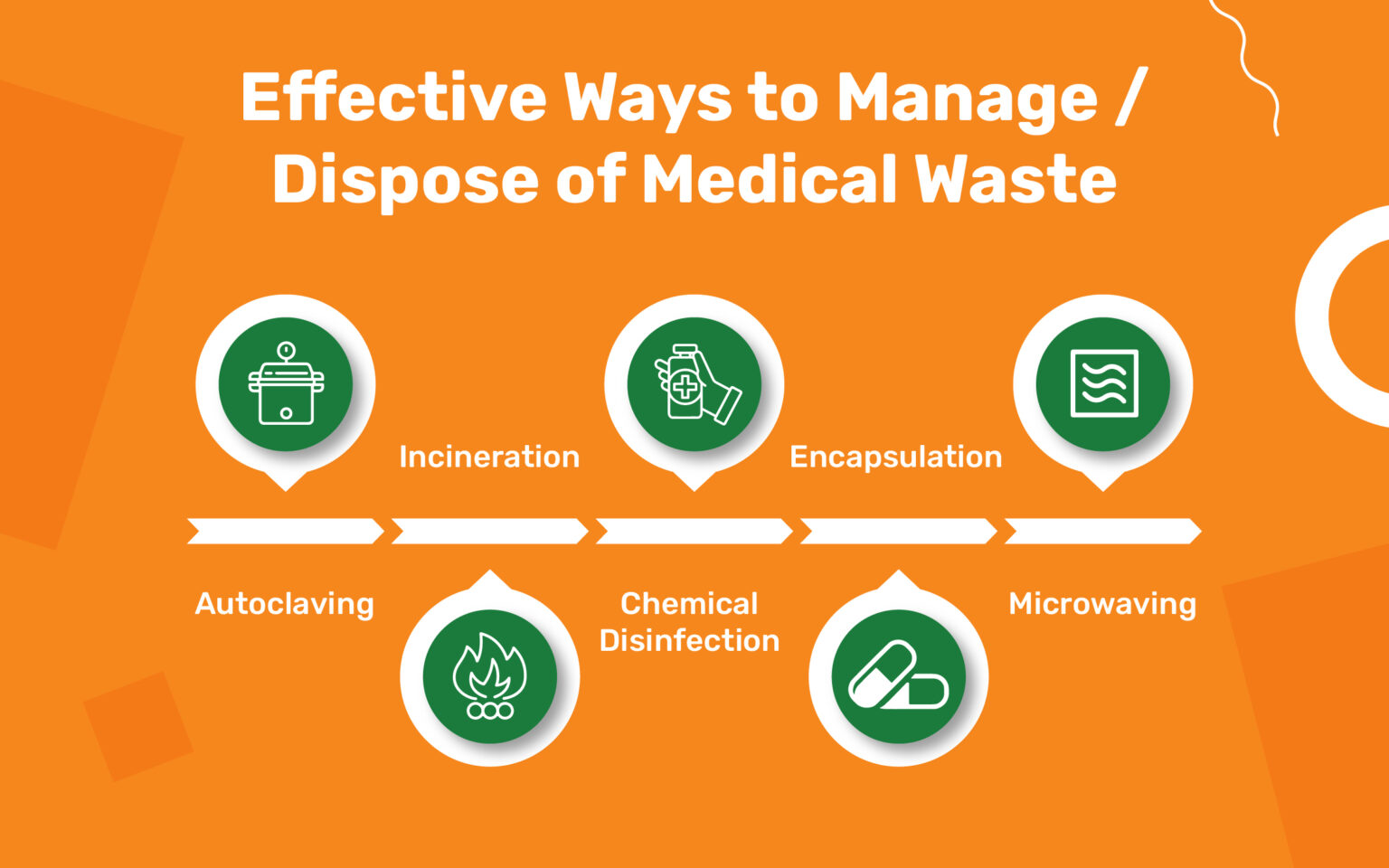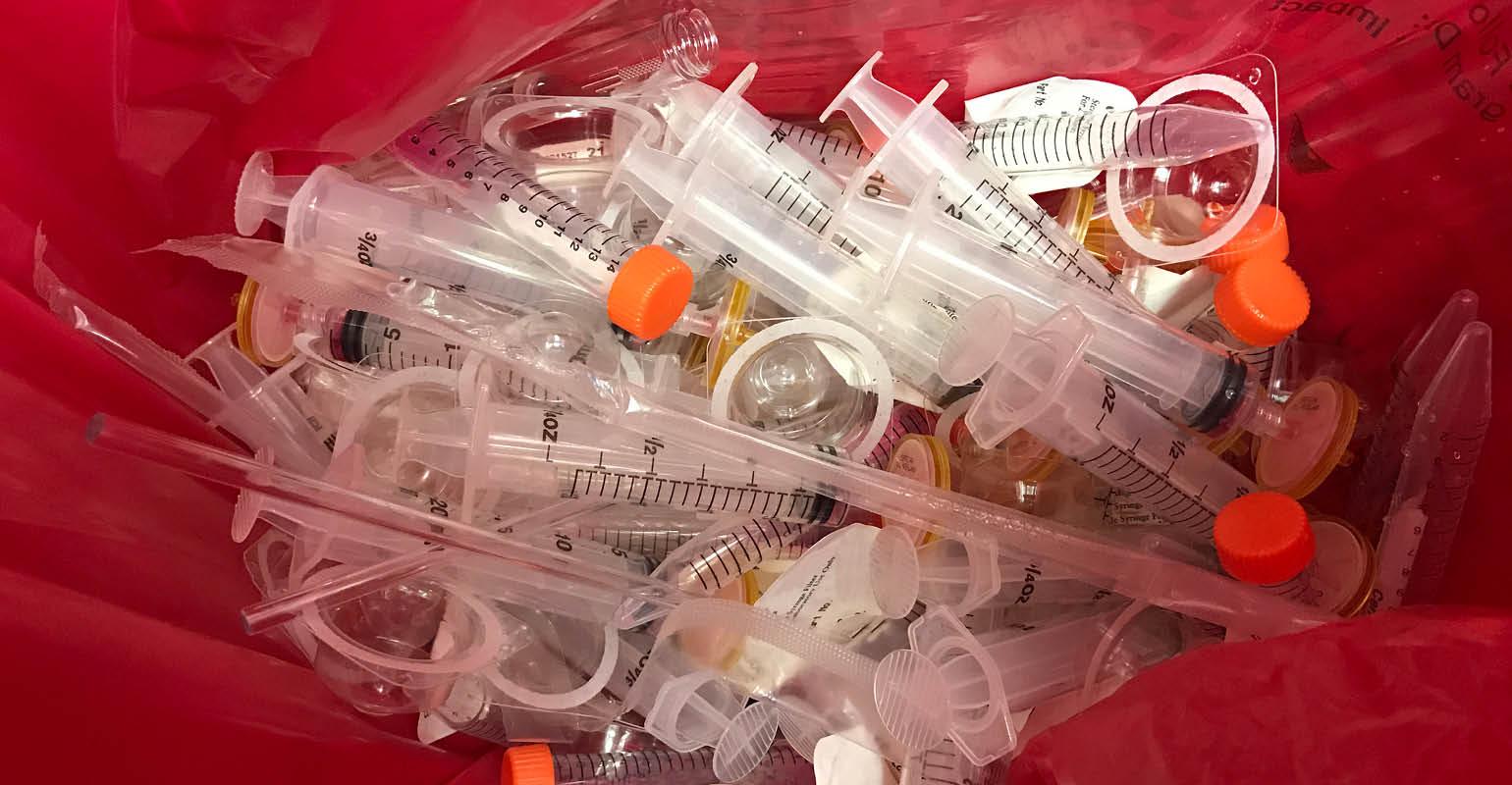Defending Well-Being: Unveiling the Essence of Expert Medical Waste Removal
The Value of Proper Medical Garbage Disposal: A Guide for Healthcare Facilities
Proper medical garbage disposal is a critical facet of medical care facility management, making sure the safety and health of clients, personnel, and the environment. From recognizing the various groups of clinical waste to abiding by regulatory requirements, medical care facilities need to embrace effective waste partition methods and select suitable disposal techniques. The relevance of appropriate clinical waste disposal goes beyond simple conformity; it is a responsibility that calls for continuous training and education and learning for staff. In this overview, we will check out the numerous aspects of medical waste disposal and highlight the vital steps that health care facilities must take. By carrying out these techniques, healthcare facilities can reduce risks, shield public wellness, and add to a cleaner, much safer setting.
Recognizing Medical Waste Categories
Understanding clinical waste groups is vital for appropriate disposal in medical care centers. Medical waste is a wide term that includes different types of waste generated in healthcare setups, such as clinics, research laboratories, and healthcare facilities. Classifying medical waste helps make certain that it is dealt with, saved, and disposed of safely and based on relevant laws.
There are several classifications of medical waste that healthcare centers require to be familiar with. These classifications include contagious waste, sharps waste, pharmaceutical waste, chemical waste, and radioactive waste (medical waste disposal services with WasteX). Each classification has specific characteristics and needs various disposal approaches to lessen the risk of harm to health care workers, patients, and the environment
Infectious waste, as an example, describes lose infected with possibly infectious materials, such as blood, body liquids, and tissues. Sharps waste includes needles, syringes, and other sharp objects that can trigger injury or send infections. Drug waste consists of ended or unused drugs, while chemical waste is composed of unsafe chemicals used in medical treatments. Lastly, radioactive waste includes materials contaminated with contaminated materials, such as nuclear medication products.
Conformity With Regulatory Requirements
Healthcare centers have to make certain compliance with governing requirements for proper medical waste disposal. Regulatory bodies, such as the Epa (EPA) and the Occupational Security and Wellness Management (OSHA), have developed standards and guidelines to guard public health and wellness and the environment. These regulations lay out the appropriate handling, storage space, transportation, and disposal of clinical waste.
Compliance with governing demands is important for healthcare centers to avoid legal fines, reputational damage, and possible harm to human health and wellness and the environment. Failing to abide by these regulations can cause fines, claims, and even the suspension or abrogation of running licenses.
To make certain conformity, health care facilities should develop extensive waste monitoring programs that include staff training, correct waste segregation, and making use of ideal containers and tags. Routine audits and inspections ought to likewise be carried out to determine any kind of non-compliance issues and resolve them promptly.
It is crucial for medical care centers to remain up to date with modifications in guidelines and update their waste administration methods appropriately. This can be attained by proactively keeping an eye on updates from governing bodies and taking part in training programs and workshops.
Carrying Out Effective Waste Segregation Practices
To make sure appropriate medical garbage disposal, healthcare facilities must carry out reliable waste partition techniques. Waste partition is an important action in the total waste monitoring procedure, as it helps reduce the risk of infection, stops cross-contamination, and makes certain the secure disposal of various kinds of waste. Reliable waste partition techniques involve separating medical waste into different classifications based on its qualities and potential risks.
One typical method is the segregation of sharps waste, such as needles and scalpels, from other kinds of clinical waste. Sharps waste must be positioned in puncture-resistant containers to avoid injuries and possible infections. Furthermore, contaminated materials, such as drugs and chemicals, must be separated from general clinical waste to avoid ecological contamination.
Proper labeling and color-coding of waste containers are crucial for efficient waste segregation. Clear and visible tags ought to be put on each container to show the kind of waste it includes and any kind of special handling needs - medical waste disposal services with WasteX. Furthermore, color-coding can be made use of to differentiate in between various waste groups, making it easier for medical care personnel to determine and dispose of waste correctly
Regular training and education and learning for medical care personnel is essential for the successful execution of waste segregation practices. Employee need to be educated on the different waste groups, correct partition techniques, and the significance of adhering to waste management protocols. This will help make sure conformity and uniformity in waste segregation practices throughout the facility.
Picking Appropriate Disposal Techniques
Proper selection of ideal disposal approaches is crucial in making sure the secure and eco liable administration of medical waste in medical care centers. Health care centers generate a selection of medical waste, consisting of sharps, contagious waste, pharmaceutical waste, and chemical waste - medical waste removal near me. Each type of waste calls for certain disposal techniques to decrease the threat of contamination, injury, and environmental damage
One usual disposal technique for medical waste is incineration. Incineration entails the regulated burning of waste at high temperatures.

Chemical sanitation is another method used for particular sorts of medical waste, such as pharmaceutical waste. This technique uses chemicals to reduce the effects of or damage pollutants. It is essential to pick chemicals that are safe and ecologically friendly.
In some instances, landfill disposal may appropriate for non-hazardous medical waste (medical waste disposal services with WasteX). However, correct partition and packaging are critical to avoid leakage or contamination.
Eventually, health care facilities have to thoroughly evaluate the characteristics of their medical waste and pick suitable disposal techniques that focus on security, environmental management, and governing conformity. Routine training and monitoring are important to ensure that medical care personnel complies with correct disposal methods.

Training and Educating Staff on Correct Disposal Procedures
Team education and learning and training play an essential role in making sure the proper disposal of medical waste in healthcare centers. It is vital that all employee, consisting of physicians, registered nurses, service technicians, and assistance personnel, obtain thorough training on correct disposal treatments. This training ought to cover the different types of medical waste, their prospective dangers, and the suitable methods for managing, setting apart, and disposing of them.
Among the primary goals of team education and learning and training is to make sure that all health care specialists understand the value of appropriate disposal treatments and the possible effects of inappropriate waste administration. They require to be familiar with the risks connected with medical waste, such as the transmission of infections and the contamination of the setting. medical waste removal near me. By recognizing these risks, team member will be extra motivated to comply with appropriate disposal methods and take the required safety measures to secure themselves, their associates, and the neighborhood
Training need to likewise cover the use you could try here of individual protective devices (PPE) and the proper techniques for handling medical waste. Team member need to be informed on exactly how to identify and segregate different types of waste, such as sharps, infectious waste, and harmful chemicals. They should additionally be educated on the appropriate usage of waste containers, such as sharps containers and biohazard bags, as well as the importance of labeling and securing these containers appropriately.
Moreover, staff education and training need to consist of routine updates and correspondence course to ensure that medical care specialists stay educated regarding the most recent regulations and ideal techniques in medical waste disposal. This continuous education read the article is important to preserve a high degree of awareness and compliance amongst personnel.
Conclusion
In final thought, proper clinical waste disposal is of utmost significance for health care centers. Comprehending the different categories of medical waste and abiding by regulatory needs makes certain the safety and security and wellness of both health care workers and the public. Applying efficient waste partition methods and choosing ideal disposal methods are important in avoiding the spread of transmittable diseases and securing the setting. Training and informing personnel on proper disposal procedures is crucial for preserving a tidy and secure medical care facility.
From understanding the different groups of medical waste to abiding with regulative needs, healthcare facilities must embrace reliable waste segregation techniques and select ideal disposal methods. These groups consist of infectious waste, sharps waste, pharmaceutical waste, chemical waste, and contaminated waste.To make certain proper clinical waste disposal, health care centers must execute efficient waste partition practices. Waste segregation is an essential step in the total waste management process, as medical waste disposal services with WasteX it assists lessen the danger of infection, prevents cross-contamination, and guarantees the risk-free disposal of various types of waste. Healthcare centers create a variety of medical waste, including sharps, infectious waste, pharmaceutical waste, and chemical waste.